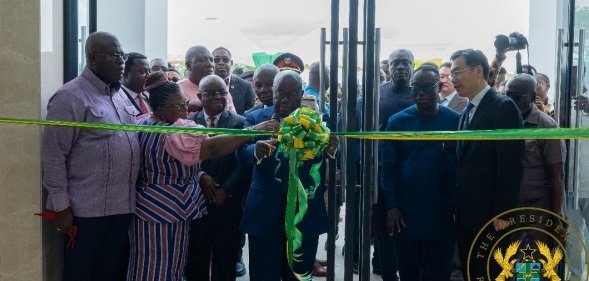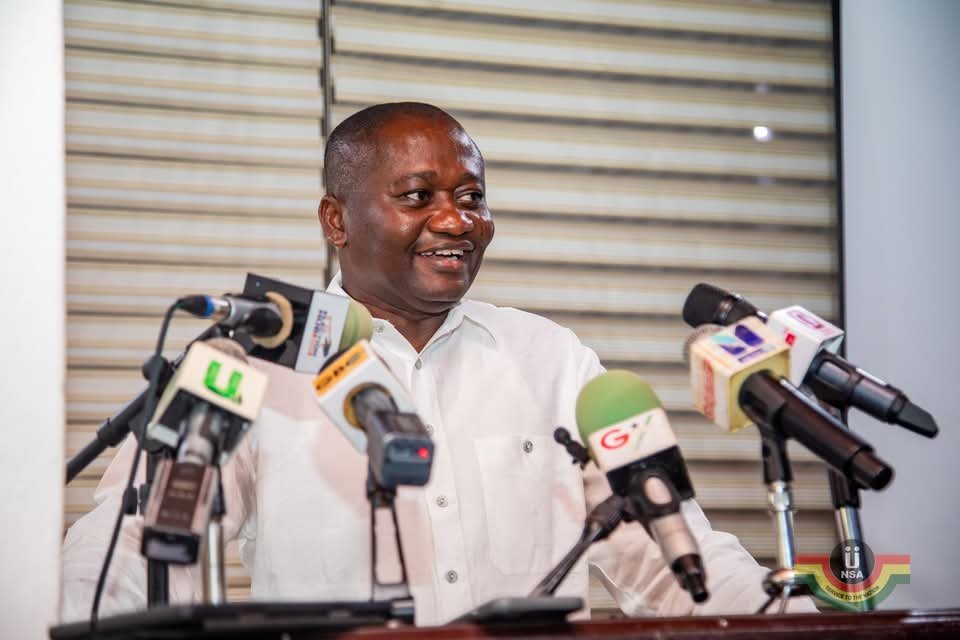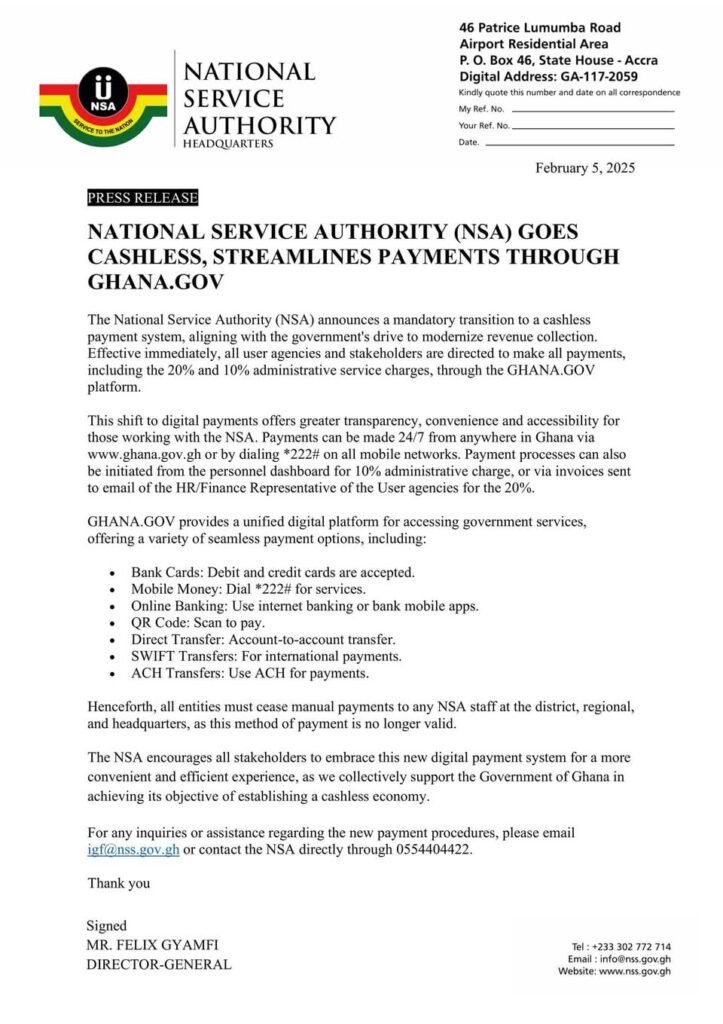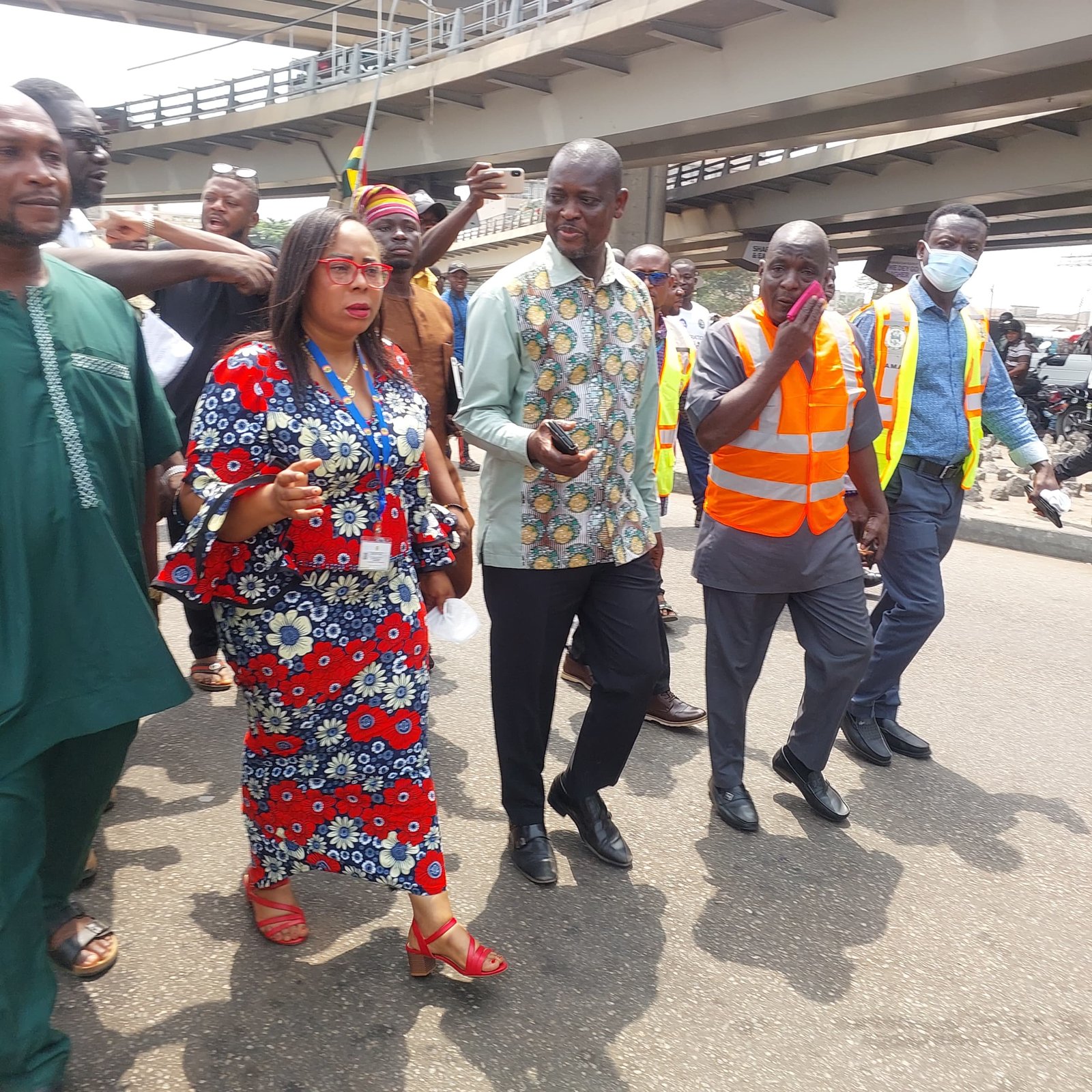News
President Akufo-Addo commissions phase II expansion project of UHAS

On Monday, July 29, 2024, President Nana Addo Dankwa Akufo-Addo commissioned the Phase II expansion project of the University of Health and Allied Sciences (UHAS), highlighting the significance of this development for Ghana’s healthcare sector.
Reflecting on the project’s journey, President Akufo-Addo recalled the sod-cutting ceremony for Phase II on September 10, 2021. He acknowledged the need for further infrastructural development at UHAS to fulfill its mandate effectively.
Under his directive, the Ministers for Education and Finance, in collaboration with UHAS management and the then Vice Chancellor Professor John Owusu Gyapong, secured $60 million in funding from the Chinese Government.
The President expressed gratitude to the President, Government, and People of the People’s Republic of China for their support and the strengthening bilateral relations between the two nations.
He also acknowledged the efforts of the outgoing Chinese Ambassador to Ghana, His Excellency Lu Kun, and his predecessor, the late Ambassador Her Excellency Sun Bahong.
The contribution of the contractors, Nantong Sijian Construction Group, and Ghana’s former Ambassador to China, Ambassador Edward Boateng, was also recognized.
The completion of Phase II will significantly enhance UHAS’s capacity to train more health professionals, including doctors, nurses, pharmacists, and other allied health practitioners.
This expansion is essential to address the growing healthcare needs of Ghana’s population and the demand for a skilled workforce. With additional facilities and resources, UHAS will be better positioned to offer comprehensive education and practical training, ensuring graduates are well-prepared for the healthcare sector’s challenges.
Moreover, the new facilities will support cutting-edge research and innovation, allowing scientists and researchers to explore new advancements in medicine and healthcare delivery.
This progress is crucial for developing locally relevant solutions to health challenges and establishing Ghana as a leader in health research in Africa.
To mark this special occasion, President Akufo-Addo announced a personal donation of ten desktop computers and ten laptops to UHAS. These devices will aid the administration and enhance the university’s capacity to provide quality education and services.
President Akufo-Addo also took the opportunity to express his profound gratitude to the outgoing Chairperson of the University Council, the esteemed former Justice of the Supreme Court, Mr. Justice Jones Victor Mawulorm Dotse, for his exemplary leadership and contributions over the past six years. He wished Mr. Dotse God’s blessings and success in his future endeavors.
The commissioning of the Phase II expansion project marks a significant milestone in UHAS’s journey towards becoming a premier institution for health education and research in Ghana and beyond.
News
National Service Authority goes cashless

The National Service Authority (NSA) has announced a mandatory transition to a cashless payment system.
This initiative aligns with the government’s drive to modernize revenue collection.
In a statement, NSA noted that effective immediately, all user agencies and stakeholders are directed to make all payments,
including the 20% and 10% administrative service charges, through the GHANA.GOV platform.
This shift to digital payments offers greater transparency, convenience and accessibility for those working with the NSA.
By Edem Mensah-Tsotorme
Read the full statement below

News
Greater Accra Regional Minister calls on traders to operate within designated spaces to ease congestion

The Greater Accra Regional Minister, Linda Obenewaa Akweley Ocloo, has called on traders in the city to operate within designated spaces to ease congestion and maintain cleanliness in market centres.
Speaking with traders at the Kaneshie Market on February 4, 2025, during a tour of selected market centres to assess sanitation challenges, reinforce government commitment to address indiscriminate refuse disposal, and improve market conditions, the minister called for collaboration between traders and local authorities to address sanitation and maintain order.
She assured the new government’s commitment to addressing urban challenges and improving market conditions in Accra as part of its broader agenda for a cleaner city.
“We are here to engage you in a conversation about our mission to improve cleanliness in Greater Accra. We are taking into account the conditions of the roads, your problems, and your suggestions. Most walkways have been taken over by traders instead of serving their original purpose, which leads to traffic congestion. We want to understand your challenges so that we can find the best way to assist you,” the Minister stated.
The Minister who was accompanied by officials from the Greater Accra Regional Coordinating Council ( GARCC) led by the Chief Director of the GARCC, Mrs. Lilian Baeka, some staff from the Accra Metropolitan Assembly(AMA) and other sister assemblies in the Region used the opportunity to enquire about the state of waste disposal within the market and the efficiency of refuse collection by the assemblies.
“Does it take long for the refuse to be collected after it is gathered? These are some of the issues we want to address,” she added, inviting traders to share their thoughts.
The President of the Greater Accra Markets Association, Mrs. Mercy Naa Afrowa Needjan who welcomed the minister, expressed gratitude for the visit and assured traders commitment to rally support behind her as a woman in leadership.
”In the market, we face numerous challenges we wish to discuss. There are various groups of traders with some selling at the top, others beneath, while some can be relocated, others should be removed. However, we must follow due process to ensure that people’s livelihoods are not affected. She cannot do it alone, and we are ready to support her efforts,” she stated.
She noted that efforts to regulate trading activities, especially on the Kaneshie overhead footbridge, had proven difficult despite continuous engagements with the police.
Madam Mercy Naa Afrowa Needjan identified street trading as a major concern, explaining that it had significantly affected business inside the main markets.
“Our major problem is those selling outside. Because of them, the market is now dry. Almost everyone has moved onto the streets. They are our brothers and sisters, and we want them inside the market. There are a lot of vacant spaces they can occupy,” she said.
On sanitation, she remarked that significant progress had been made, stressing that previously, the Kaneshie market was associated with rubbish, but the story had changed for good.















